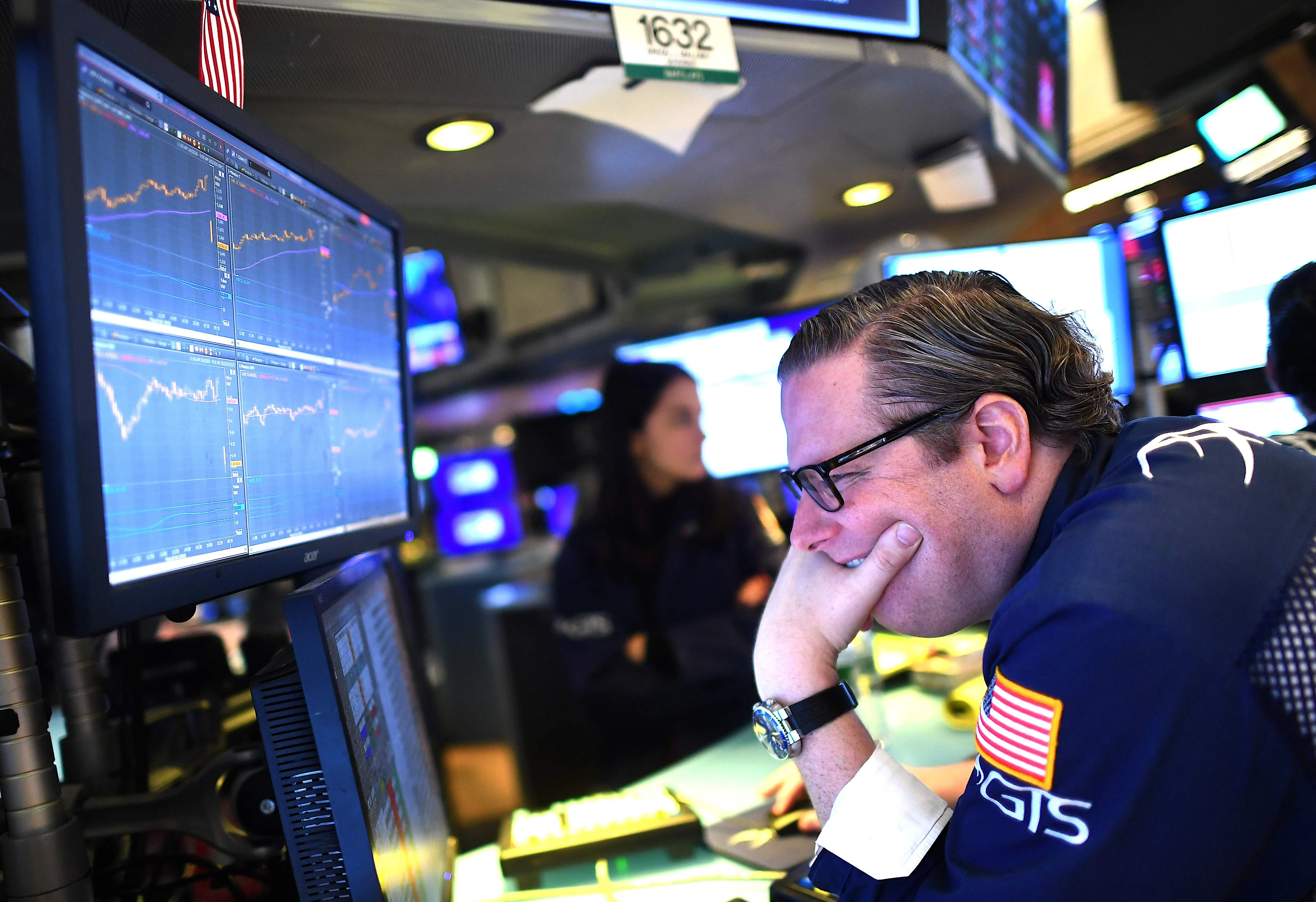Global stock markets continued to slide Friday as President Donald Trump’s sweeping new import tariffs rattled investors and fueled concerns about the health of global economic growth. The selloff, which has persisted for several sessions, weighed heavily on U.S. and European equities and overshadowed the recent optimism surrounding artificial intelligence and major tech earnings.
Futures tied to the S&P 500 dropped nearly 1%, signaling that the index was on track to extend its three-day losing streak. Amazon.com Inc. saw a particularly sharp hit in premarket trading, tumbling more than 8% after posting weaker-than-expected earnings.
The disappointing results introduced a cautious tone to what has otherwise been a broadly positive earnings season for mega-cap technology companies.
Meanwhile, the MSCI All Country World Index declined for a sixth consecutive session, marking its longest stretch of losses since September 2023. In currency markets, the U.S. dollar strengthened, while Treasury yields remained steady as traders awaited key U.S. jobs data set to be released later in the day.
Trump’s latest trade measures include a 10% global minimum tariff and higher duties of 15% or more for countries that maintain trade surpluses with the U.S. These moves represent a renewed push by the president to overhaul international trade agreements, a strategy that has repeatedly disrupted markets during his tenure. The announcement has sparked fresh questions about the potential impact on both economic growth and inflation, clouding the optimism that had been driving gains in technology stocks fueled by AI-related investments.
“Next week marks a significant turning point for global trade with the introduction of Trump’s tariffs,” said Kim Heuacker, associate consultant at Camarco. “This creates considerable uncertainty about how these new and historical barriers will affect markets in practice. With current stock valuations already high, particularly in the U.S., justifying further gains is becoming increasingly difficult.”
In Europe, the Stoxx 600 index fell more than 1% to its lowest level in a month. Pharmaceutical giants including Novo Nordisk A/S, Sanofi SA, GSK Plc, and AstraZeneca Plc led the declines after Trump called on drugmakers to cut U.S. prices.
According to Ludovic Subran, chief investment officer at Allianz SE, the tariffs will be particularly harmful to European firms. “The cost for companies will be huge, as the U.S. is the biggest market by far,” Subran noted.
While Trump’s baseline tariffs for many partners remain unchanged at 10%, which eased some investor fears after earlier hints they could double, new measures targeting Canadian goods with rates as high as 35% threaten to escalate tensions between Washington and Ottawa.
According to Bloomberg Economics, if all announced tariffs take effect, the average U.S. tariff rate would rise to 15.2%, up from 13.3% currently and significantly above the 2.3% level recorded in 2024 before Trump’s return to office.
Markets are now bracing for the latest U.S. employment report, which is expected to offer further insight into the strength of the labor market. Economists project that hiring slowed in July compared to June, with the unemployment rate likely ticking up to 4.2%. Analysts believe the data could influence future market direction as investors assess whether slowing job growth might temper the economic impact of rising tariffs.
“Given all the uncertainties, it makes a lot of sense for traders and dealers to take some money off the table going into nonfarm payrolls today,” said Gareth Nicholson, chief investment officer at Nomura International Wealth Management.
Market strategists also noted that with equities already under pressure from trade concerns, a weaker-than-expected jobs report could deepen selling, while a strong report may rekindle worries about persistent inflation and potential Federal Reserve policy tightening.
Despite some relief that Trump did not implement even harsher tariffs, the broader sentiment across global markets remains cautious. Investors are grappling with the implications of higher trade barriers, rising costs for multinational corporations, and the potential for slowing global trade. As one strategist put it, the tariffs are creating “a new layer of uncertainty” that markets must digest, potentially setting the stage for continued volatility in the weeks ahead.

Subscribe to our newsletter!
As a leading independent research provider, TradeAlgo keeps you connected from anywhere.








